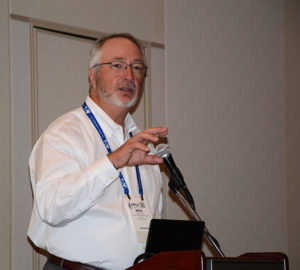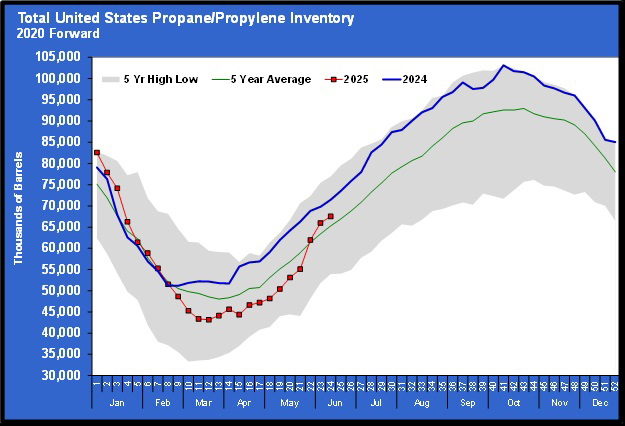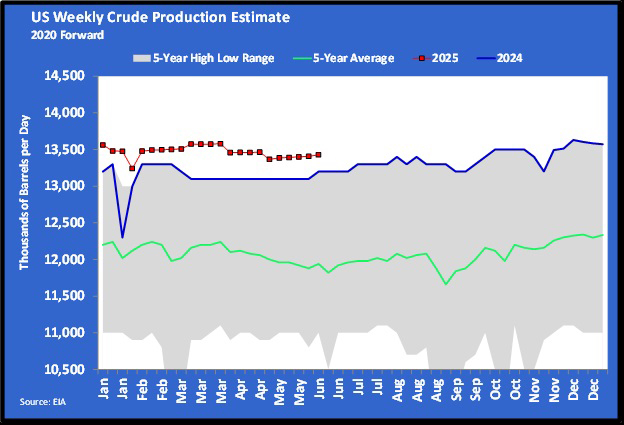Autogas leader chooses ‘quality of life’ over life on the road
The “Autogas Guy” has taken his foot off the accelerator.

Michael Taylor left his post as director of autogas business development at PERC. Photo by Brian Richesson
Michael Taylor’s decision to end his nearly eight years as the director of autogas business development at the Propane Education & Research Council (PERC) – the last 12 in the propane industry – and walk away from a full-time career was based on lifestyle, perspective and timing.
“The toughest part of the decision is giving up what you really love to do,” Taylor says, “but it was time.”
It was time, Taylor says, because he wanted more time for the things that really matter in life and simply to catch his breath after spending the better part of three decades – in the school transportation and propane industries – on the road.
Where he and his wife Tami reside in Daphne, Alabama, there are plenty of sunsets to enjoy. There’s plenty of time to be spent outside, fishing and learning to golf. There are four grandchildren and a family that awaits.
“With the [autogas] initiatives that are in play, it requires dedication to travel,” Taylor says. “I’m at that age (63) and point in life where quality of life is very important to me. Honestly, I just felt it would be best if they found someone who can do that. I didn’t want to do anything that would prohibit the growth of autogas.”
‘No negatives’
Taylor says he woke every morning feeling joy to spread the autogas message.
Even before he took the PERC job in 2012, Taylor was working to carry out this message as a chairman and member of PERC’s Engine Fuels Advisory Committee. His work coincided with his full-time role as director of fleet management for Heritage Propane.
With PERC, Taylor’s goals were to increase the awareness and uses of autogas – goals he feels were met.
“When you look across different markets at the fleets that have purchased propane, UPS, Schwan’s, Nestlé Waters, there are a number of well-recognized companies buying and using propane,” Taylor says.
Taylor also recalls when only a couple thousand school buses operated on propane autogas. That number today has surged to about 20,000 units, with the major school bus manufacturers offering propane models and a stream of repeat buyers helping autogas stake its claim in the school bus market.
“Working together, we have changed transportation – especially school buses – in the U.S. forever,” Taylor wrote in an email to friends and colleagues.
Barriers to growth
The potential for autogas is unlimited, Taylor says, because the U.S. transportation sector is so large. But plenty of work remains.
Taylor admits his frustrations on several fronts. Maybe the most frustrating is having the data to show the significant cost savings that fleets can reap by converting to propane, yet many won’t make the switch.
“Americans are very traditional, very conservative when it comes to transportation,” Taylor says. “They get to be very comfortable and resistant to change.”
Taylor says they’re also fearful of buying a vehicle they can’t refuel – a common misperception and a major challenge for autogas.
“We’re the most versatile fuel out there,” he adds. “There is no part of the country that we can’t reach a customer with fuel.”
Taylor exits hoping more propane marketers will consider propane autogas for their own fleets – an endeavor he pushed aggressively while at PERC. He admits to challenges, including early on with Freightliner’s S2G propane bobtail chassis, but is confident in the propane vehicle options available to marketers today.
“There are solutions out there that will produce huge benefits, huge savings and make our industry more competitive,” he says.
Autogas faces a competitive marketplace with the likes of electricity, gasoline and diesel, and also with CNG making a comeback in some markets, Taylor says. For autogas to thrive, he adds, the propane industry must unify in order to promote the fuel and drive necessary change.
Whatever the future holds for autogas, Taylor says he is willing to help and lend his knowledge to the industry. But it will come in a different capacity.
As Taylor signed a recent email to colleagues: “Autogas Guy out.”
















